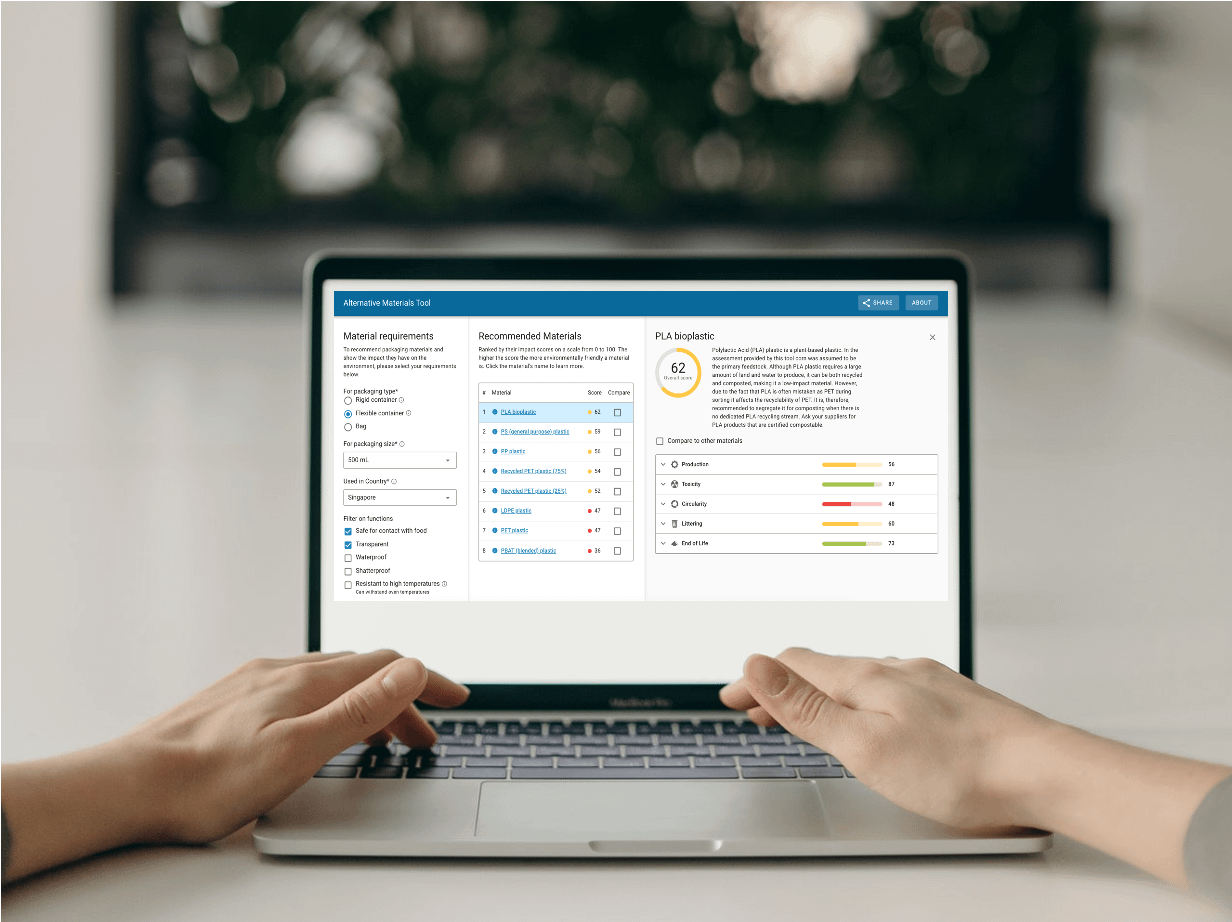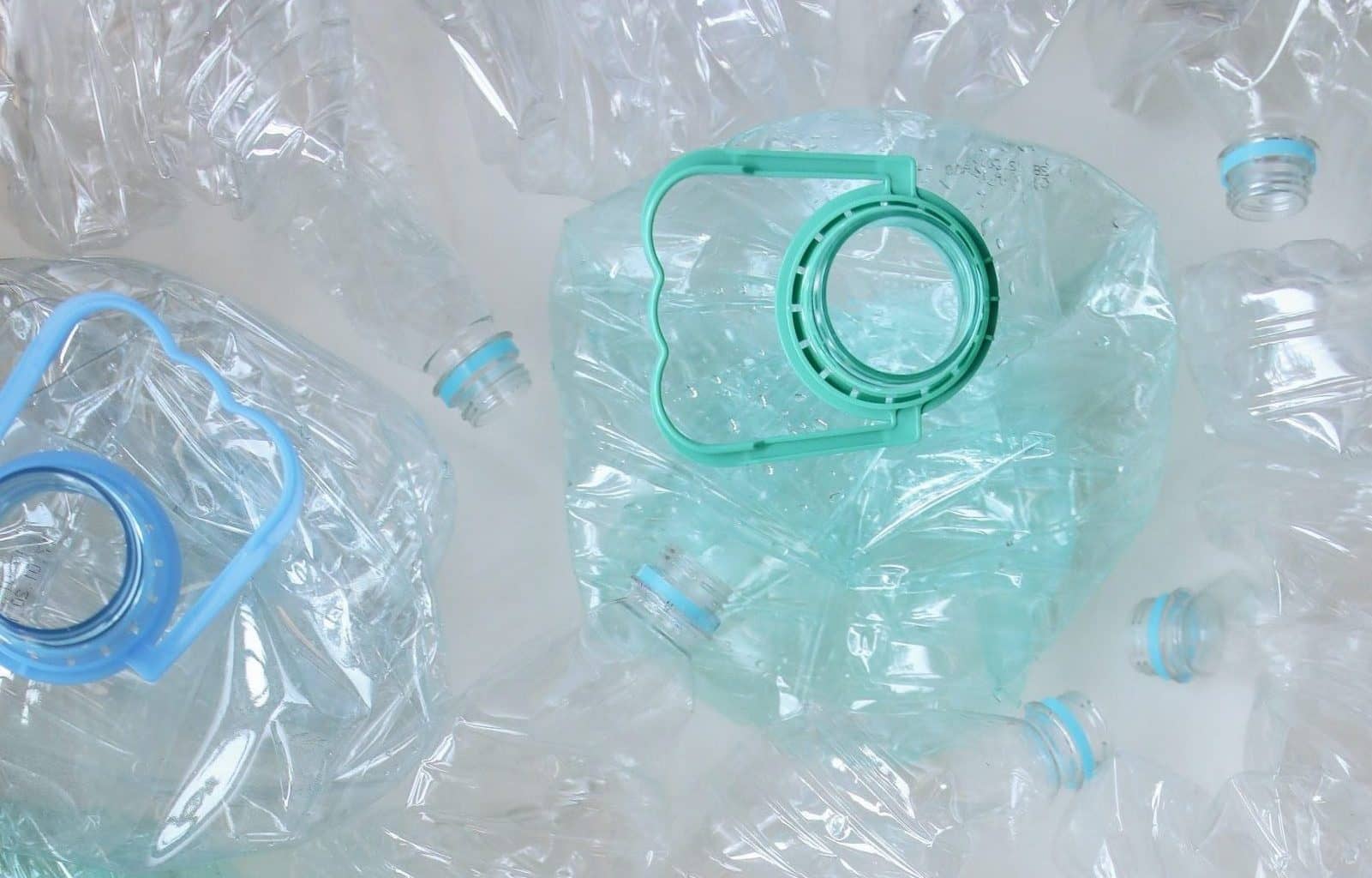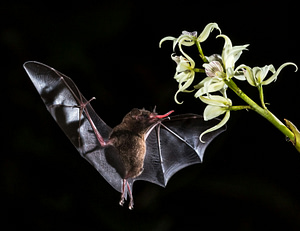Making sustainable packaging choices can be a challenge. Is biodegradable better than recyclable? How was it made, and where will it go once it’s been used? The new Alternative Materials Tool, developed for WWF Singapore, helps answer some of these questions.
Procurement managers within the hospitality sector have a new ally for tackling tough packaging decisions. The Alternative Materials Tool, developed by Metabolic’s Consulting and Software teams for WWF Singapore, is an online platform that helps users select packaging materials with the lowest environmental impact.
At an online public launch event in Singapore on Tuesday, Mr R. Raghunathan, CEO of WWF-Singapore, was joined by Her Excellency, Mrs Margriet Vonno, Ambassador of the Netherlands to Singapore and Brunei, and others to discuss how the tool can help businesses reduce their single-use packaging footprints, and contribute towards Singapore’s zero waste masterplan for plastics.
The Alternative Materials Tool measures the environmental impacts of over 30 different packaging types, including glass, cotton, aluminum, and more than 10 types of plastic. It accounts for impacts across the packaging’s lifecycle — from raw material extraction, and manufacturing, to waste management — drawing on context-specific impact data relevant to the geographies in which the tool will be used: Singapore, Malaysia, Philippines, and Thailand.

The tool has been developed as part of WWF’s No Plastic in Nature initiative (PACT), in response to the worsening problem of plastic pollution in Singapore and across Asia. Currently, only 4% of plastics in Singapore are recycled. The Alternative Materials Tool aims to begin tackling this challenge by giving professionals clear guidance on how to reduce damage from downstream impacts such as marine litter and landfilling.
Impacts assessed for each packaging type range from production impacts such as energy, water, and land use, to recyclability, compostability, and likelihood of reuse, which influence the circularity of the product. Some impacts are weighted more heavily than others: those that affect a severely transgressed planetary boundary, pose harm to human health and safety, or contribute to litter pollution on land or at sea.
In addition to providing a ranked list of packaging options, the tool also sheds light on elements of the sourcing process that can enhance circular economy performance/outcomes. It recommends, for example, prioritizing products containing 50-100% recycled content, aiming for mono-materials (packaging made from a single material, with no layers or films), and where possible switching to packaging that is durable enough for multiple life cycles.
In line with PACT’s guiding principles, the tool cautions the indiscriminate use of bioplastic, which – contrary to popular assumption – is not always the most sustainable choice. Not all bioplastics are easily biodegradable or recyclable and, depending on the plant-based material they are made from, they can be resource intensive to produce. Biobased plastics may indeed offer environmental advantages over their fossil-based counterparts, but they must be sourced and managed responsibly to realize this potential. Read more about the methodology of the tool here.
“When making sustainability decisions, it’s important that we don’t simply shift the burden elsewhere,” said Andrew McCue, lead Metabolic consultant on the project. “We are really pleased to have been able to work with WWF on a tool that helps businesses navigate complex sustainability trade-offs by accounting for local context and production impacts as well as issues like recyclability .”
Metabolic’s Software team hopes to broaden the application of such science-based tools to other industries, products, and regions.
To try the Alternative Materials Tool, visit: https://plastic-action.asia/alternative-materials-tool/







